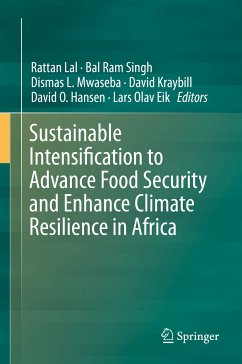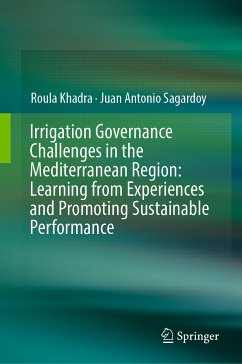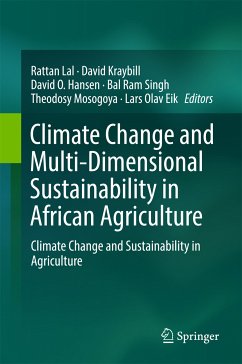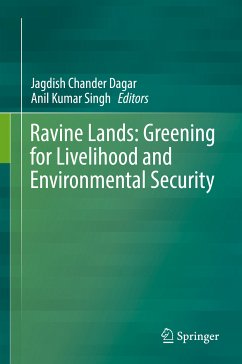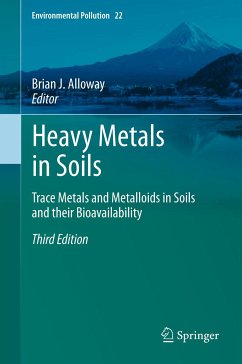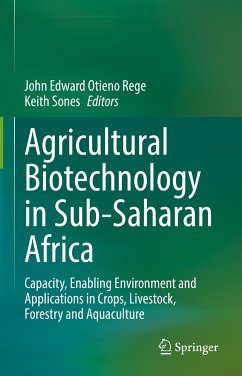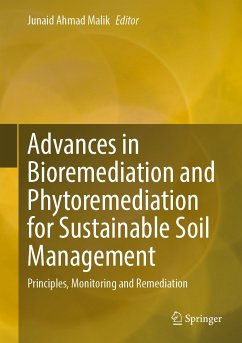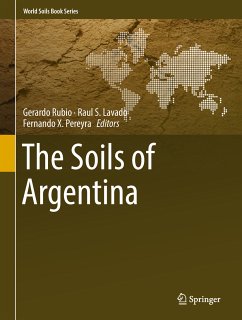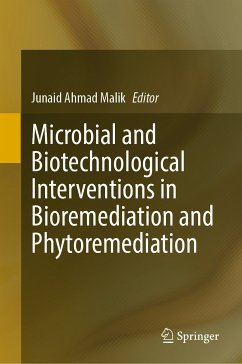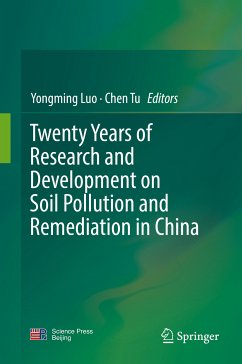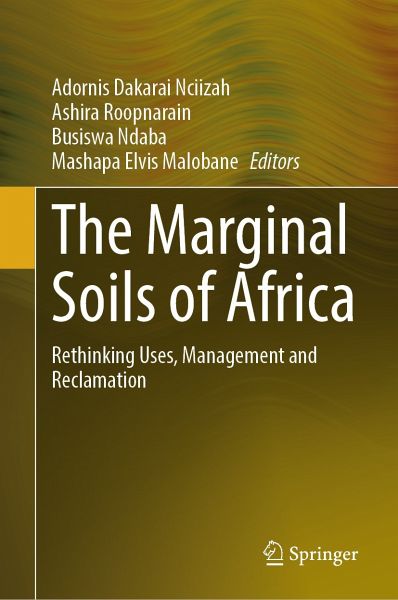
The Marginal Soils of Africa (eBook, PDF)
Rethinking Uses, Management and Reclamation
Redaktion: Nciizah, Adornis Dakarai; Malobane, Mashapa Elvis; Ndaba, Busiswa; Roopnarain, Ashira
Versandkostenfrei!
Sofort per Download lieferbar
96,95 €
inkl. MwSt.
Weitere Ausgaben:

PAYBACK Punkte
48 °P sammeln!
This book addressed the pressing challenges of climate change, land scarcity, and food security, offering a comprehensive synthesis of research on using, managing, and reclaiming marginal lands in Africa. Unfavourable climatic conditions and rapid population growth intensify competition for land, putting pressure on traditional agricultural soils thus necessitating a transition towards underutilized marginal lands. Reclaiming these damaged and undervalued areas through various technologies presents a promising path not only to food independence but also to second-generation biofuel feedstock p...
This book addressed the pressing challenges of climate change, land scarcity, and food security, offering a comprehensive synthesis of research on using, managing, and reclaiming marginal lands in Africa. Unfavourable climatic conditions and rapid population growth intensify competition for land, putting pressure on traditional agricultural soils thus necessitating a transition towards underutilized marginal lands. Reclaiming these damaged and undervalued areas through various technologies presents a promising path not only to food independence but also to second-generation biofuel feedstock production, utilizing excess biomass from these revived lands. While recent years have seen increased focus on restoring degraded lands, a crucial gap remains i.e. a unified knowledge base detailing the efficacy of various reclamation technologies. This book fills that void, empowering farmers and policymakers with the insights they need to make informed decisions, mobilize resources effectively, and ultimately help Africa meet its projected 60% food demand increase.
Dieser Download kann aus rechtlichen Gründen nur mit Rechnungsadresse in A, B, BG, CY, CZ, D, DK, EW, E, FIN, F, GR, HR, H, IRL, I, LT, L, LR, M, NL, PL, P, R, S, SLO, SK ausgeliefert werden.



